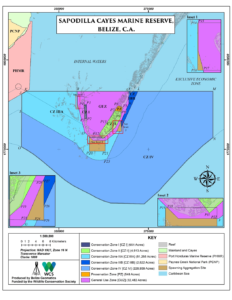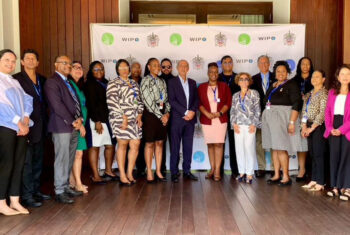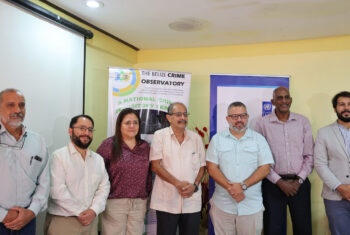Belmopan. July 31, 2020. 12:35 p.m.
The Minister with responsibility for Fisheries, Dr. Hon. Omar Figueroa, has signed a Statutory Instrument for the expansion of the Sapodilla Cayes Marine Reserve to protect an important reef ecosystem known as the Corona Reef or Cayman Crown located south of the Sapodilla Cayes.
The Corona Reef is situated at the southwest terminus of the Cayman Trench, within Belize’s Exclusive Economic Zone. The Corona Reef complex is one of the most under represented habitats in the marine protected areas system of Belize and is believed to be a biologically important hotspot, serving as a spawning aggregation site for numerous fin fish species and as a habitat for deep-slope snapper and bottom-dwelling species. Due to its proximity to neighboring countries, primarily Guatemala and Honduras, the reef complex faces continuous threat of transboundary illegal fishing. This new protected status will allow for more effective law enforcement presence by the Belize Coast Guard and the Fisheries Department.
The expansion will increase the size of the Sapodilla Cayes Marine Reserve to approximately seven times its existing size (see attached map). The expanded zone contains no land but is a vast area of shallow coral reefs with depths ranging from eight metres down to 80 metres and into deeper mesophotic reefs that descend into subsea canyons. The shallow reefs in Corona area exhibit areas of live coral cover as high as 60%, equivalent to the healthiest reefs in the entire Caribbean. These vibrant reefs contain threatened and endangered species of corals and previously undocumented reef types.
Deep reef environments provide habitat and spawning aggregations for various large predatory reef fish including the endangered Nassau grouper (Epinephelus striatus), Goliath grouper (Epinephelus itajara), Tiger grouper (Mycteroperca tigris), Black grouper (M. bonaci), Cubera snapper, (Lutjanus cyanopterus), Mutton snapper (L. analis) and various species of sharks. The Corona Reef holds exemplary benthic and pelagic habitats and associated biodiversity. Protecting these areas will help to replenish fish stocks and in turn contribute to the livelihoods of local communities through the fishing and tourism sectors.
Ends



